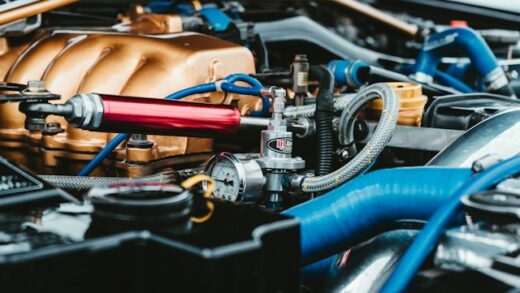Choosing the right solution for your company can take time and effort. It would help if you considered factors like price, implementation timelines, and software compatibilities.
Oil-water separators help to keep wash water clean and minimize the risk of contamination from hydrocarbon pollutants. They can be used in various applications, from metalworking industries to bilge water from ships.
Oil water separators North Carolina are mechanical devices designed to separate oil and other contaminants from water. They utilize the difference in density between oil and water to facilitate the separation process. Commonly used in industrial settings, these separators prevent oil and hydrocarbons from entering water bodies, protecting ecosystems and water quality.
Gravity Separators
Oil water separators are mechanical devices that separate oil and other contaminants from water. They utilize the difference in density between oil and water to facilitate the separation process. Commonly used in industrial settings, these separators prevent oil and hydrocarbons from entering water bodies, protecting ecosystems and water quality.
Designed to remove free oil, gravity separators work on the difference in specific gravities of water and petroleum. The heavier oil floats to the top and the lighter water drains. This type of system usually includes a solids settling chamber and an oil separation tank with coalescing baffles.
It’s important to note that gravity-type separators require a certain amount of time for the separation process. Stoke’s Law states that a 100-micron diameter oil droplet takes about 10 minutes to rise 6 inches in water. This problem is mitigated with inclined coalescing plates, allowing the oil to combine with smaller droplets and rise much faster. This increases the separation efficiency of the gravity separator.
Coalescing Plate Separators
Some separators incorporate coalescing media, such as baffles or plates, to enhance the separation process by promoting the coalescence of smaller oil droplets into larger ones.
Coalescing plate separators use inclined plates to allow oil droplets to accumulate into larger spherical particles. This allows the oil particles to separate from the wastewater and rise to the surface, where they can be skimmed away. They are an effective treatment for most sites, including petroleum storage yards, vehicle maintenance, and washing areas, industrial manufacturing areas, airports, and water, electric, and gas utility areas.
A properly sized skimmer system can improve the efficiency of your separator, reduce costs, and create new revenue streams.
Sand Filters
As its name implies, a sand filter is designed with sand as the primary medium for wastewater treatment. It can be used as a single-medium or as part of a multi-media system that includes flocculants and carbon elements for enhanced oil removal.
Sand filters use physical, chemical, and biological processes to treat wastewater. The physical process involves screening, sedimentation, and adsorption. The chemical process involves dissolving and absorbing organic impurities in the sand filter. The biological process involves natural death, scavenging, and predation in the sand filter.
Coalescing separators use a principle similar to gravity-based systems but utilize an oleophilic medium to help the oil droplets bind together and increase in size, which helps them rise to the surface more quickly for enhanced separation. In addition to the oleophilic media, coalescing separators also feature inclined parallel plates that maximize surface area, which enhances oil removal efficiency. For improved efficiency, the sand in a coalescing separator must be of uniform diameter and properly sieved and washed.
Selecting an appropriate oil-water separator involves considering factors such as flow rates, types of contaminants, and space constraints. Consulting with environmental engineers or specialists helps determine the most suitable solution for specific industrial applications.
In conclusion, oil water separators are crucial in preserving water quality and protecting ecosystems. Industries prioritizing using these devices contribute to environmental sustainability and responsible resource management.




